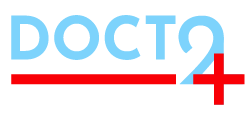Critical Analysis of Gaming Licenses: Pros and Cons
The topic of gaming licenses often sparks debate among stakeholders in the gaming industry, including developers, gamers, and policymakers. This article aims to critically analyze the pros and cons of gaming licenses, particularly in the context of regulation, safety, and market dynamics.
What is a Gaming License?
A gaming license is a legal authorization granted by a government or regulatory body that allows operators to conduct gaming activities legally. Such licenses are designed to ensure that operations meet certain standards of fairness, security, and transparency.
Pros of Gaming Licenses
- Consumer Protection: Gaming licenses enforce regulations that protect players from fraud and ensure fair play.
- Encouragement of Responsible Gaming: Operators are often required to implement responsible gaming measures, minimizing the risk of addiction.
- Market Legitimacy: Licensed operators are seen as legitimate businesses, attracting more players and investors.
- Tax Revenue: Licensing often requires operators to pay taxes, contributing to local and national economies.
Cons of Gaming Licenses
- Costs of Compliance: Obtaining and maintaining a gaming license can be costly for operators, especially small businesses.
- Regulatory Restrictions: Strict regulations may stifle innovation and limit the types of games offered.
- Market Monopolization: Licensing can favor large operators, creating barriers for new or smaller entrants to the market.
- Varying Jurisdictional Standards: Different regions have different licensing standards, complicating cross-border operations.
Comparative Analysis
| Aspect | Pros | Cons |
|---|---|---|
| Consumer Protection | Ensures fair play and security for players. | May still lead to unregulated gambling in unlicensed areas. |
| Cost | Generates tax revenue for governments. | High costs can deter small operators from entering the market. |
| Market Innovation | Promotes responsible gaming developments. | Restricts the introduction of unique and innovative gaming concepts. |
| Legitimacy | Boosts player trust in licensed operators. | Favors established companies, potentially harming competition. |
Conclusion
In summary, while gaming licenses offer significant advantages in terms of consumer protection, market legitimacy, and tax revenue, they also come with drawbacks such as high compliance costs and regulatory restrictions. It is crucial for policymakers to strike a balance that fosters a safe and fair gaming environment while encouraging competition and innovation.
Further Reading
For more insights on gaming regulations, visit Gaming Regulation and explore case studies from various jurisdictions.



